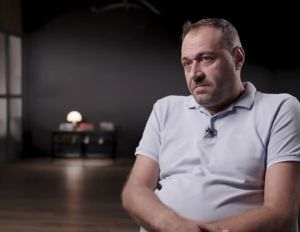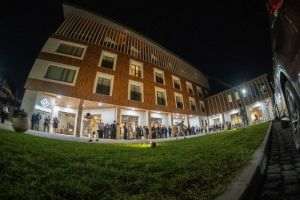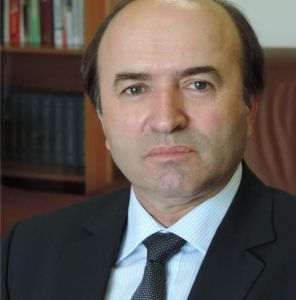For Vladimir Putin, Kim Jong-un, the North Korean leader, is a frequent person. If in most countries of the world, democratic states, including Western democracies demonized in recent years by the leader from the Kremlin, Kim Jong-un is perceived as a dictator and as the person who threatens the planet monthly with a nuclear disaster, for Putin - who claims that the Federation Russia is a democratic state, the president of the Democratic People's Republic of Korea is a friend, as will emerge from the meeting of the two in the Russian Far East, an area where the eighth edition of the Eastern Economic Forum is also being held, an event that was opened yesterday by the Russian president.
Curiously, until 2017, Russia led by Vladimir Putin voted for all UN Security Council resolutions on sanctions imposed on North Korea due to the military nuclear program of the Pyongyang regime.
This past attitude of President Putin seems to have been forgotten by Kim Jong-un, who arrived in Russia yesterday on a private armored train, accompanied by representatives of the North Korean arms industry and high-ranking officers of the North Korean Army to Pyongyang. Kim's official visit is one between the partners, the two delegations are going to hold negotiations in the coming days on several fields, announced yesterday, Dmitry Peskov, the spokesman of the Kremlin.
This is exactly what the Pyongyang leader wanted because "North Korea was basically alone, without real allies," according to Artyom Lukin, deputy director of the Faculty of Regional and International Studies at the Russian Federal Far Eastern University , quoted by Reuters.
"Now North Korea needs allies in the political-military sense of the term, China is the main ally, but it also plays the role of protector of the Pyongyang regime. Unlike the China-North Korea alliance, the Russia-North Korea alliance will be that of equals," said Artyom Lukin.
According to the cited source, although Russian officials claim that on the agenda of the discussions between the two delegations is the granting of humanitarian aid to North Korea and about the recent resolutions of the UN Security Council imposed on the regime in Pyongyang, political analysts do not in fact exclude the completion of a beneficial exchange for both states: weapons for food. Thus, North Korea would deliver the necessary weapons to the Russian Federation to continue the hostilities in Ukraine, and in exchange for the weapons, receive the necessary food for the population of that country.
The makeup of Kim's delegation, including top defense industry and military officials including Munitions Industry Department director Jo Chun Ryong, suggests a busy agenda for the two countries' defense industry cooperation, analysts cited by Reuters. Kim Jong-un could provide ammunition for artillery equipment, which could fill Russia's capabilities in the short term, but questions about the quality of the ammunition may limit the overall impact. However, authorities in Pyongyang and Moscow have denied that North Korea could supply weapons to Russia, which has spent vast stockpiles during the more than 18 months of war.
• The inconstancy of the "tsar" from the Kremlin
Beyond the Putin-Kim meeting, yesterday we had the opportunity to note once again the inconsistency of the "tsar" from the Kremlin, who, although he is at war with Ukraine, claims that the focus of the economic development policy of the Russian Federation will be on the Far East District .
The global economy has changed and continues to change in recent years, due to the fact that some countries, primarily Western countries, are destroying their own financial system, trade and economic relations that they have created and built over decades years, Russian President Vladimir Putin said at the opening of the Eastern Economic Forum, before moving to the meeting place with Kim Jong-un located more than 1,500 kilometers away, near the Vostochny cosmodrome.
He said that unlike the West, the states of the Far East are creating "a new model of relations and integration, but not according to Western patterns, for the elite, for the chosen "golden billion", but for all humanity, for the whole world functional and developing multipolar".
"Last year, Russia's trade turnover with Asia-Pacific countries increased by 13.7%, and in the first half of this year it added another 18.3%. I hope that our trade with the countries of the Asia-Pacific region and economic relations in general will continue to develop, because Russia, our Far East, is open to strengthening trade and cooperation relations, and the potential of such cooperation simply cannot be underestimated. District Federal from the Far East represents 40% of the territory of the Russian Federation. Here are almost half of our forests and gold reserves, over 70% of fish, diamonds, over 30% of titanium, copper, etc., the most important strategic enterprises, seaports and railways. In short (...) the rapid development of the Far East is our absolute priority for the entire 21st century, the responsibility and joint work of the Government, the regions, the largest domestic companies, both with state participation and fully private", said Vladimir Putin.
The Russian president showed that thanks to government support for projects in the Far East, investment agreements worth more than 7.7 trillion rubles (ed. - about 76 billion euros) were signed, of which 3.4 trillion were already invested.
"125,000 jobs were created, approximately 700 new businesses started operating. (...) In general, the dynamics of investments in the Far East is three times faster than in the rest of the Russian Federation. If from 2014 to 2022 the growth of investments in fixed capital throughout the country was 13%, in the Far East it was 39%," said Vladimir Putin, who promised new investments in mammoth projects in the field of energy and rail transport and maritime.
The Russian president also stated that despite the sanctions imposed on the Russian Federation by the EU and the US, logistics chains and goods deliveries have been restored and everything is back to normal.
Asked about the volatility of the ruble against the dollar, with one dollar worth 93 rubles yesterday morning, Vladimir Putin said that this was due to many factors, including the return or non-return of partial foreign exchange earnings from the largest Russian exporters.
"In the first stage, when the dollar was 60 rubles, the logistics chains for imports were not established. Now imports are entering our market in ever-increasing volumes, which means that foreign currency is in ever-increasing demand," said Vladimir Putin, who is awaiting the decision to be made on Friday by the central bank of the Russian Federation with regarding the reference interest rate, which reached 12% per annum.
However, the Russian president did not rule out that, in case of new increases in this reference interest rate, the Kremlin administration would intervene with certain financial instruments to support the lending of companies in the country.




























































